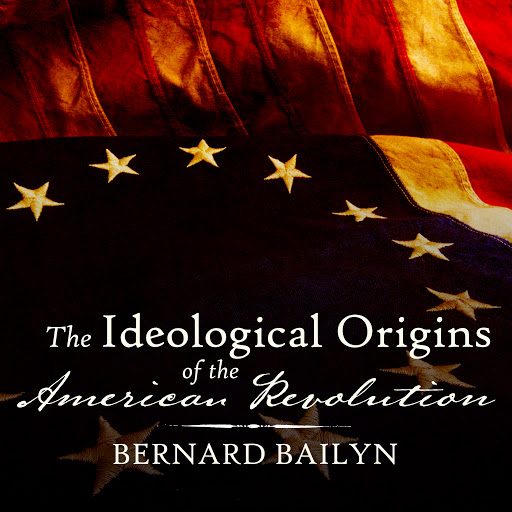The Ideological Origins of the American Revolution
Bernard Bailyn
1992
Bernard Bailyn’s Booker Prize winning ‘The  Ideological Origins of the American Revolution’ is an illuminating book challenging the prevailing interpretations of the American Revolution that far from being a spontaneous or purely reactionary uprising, it was a revolution driven not by material self-interest alone, but by a deeply held and coherent ideology, asserting that revolutionary leaders were deeply influenced by a body of radical political thought from ‘European Enlightenment’ which emphasized the dangers of tyranny and the corruption of government.
Ideological Origins of the American Revolution’ is an illuminating book challenging the prevailing interpretations of the American Revolution that far from being a spontaneous or purely reactionary uprising, it was a revolution driven not by material self-interest alone, but by a deeply held and coherent ideology, asserting that revolutionary leaders were deeply influenced by a body of radical political thought from ‘European Enlightenment’ which emphasized the dangers of tyranny and the corruption of government.
One of Bailyn’s core arguments is that the revolutionary generation viewed British actions not as isolated incidents, but as evidence of a deliberate design to undermine colonial liberty. This belief was fueled by a corpus of political writings that included thinkers like John Locke, Algernon Sidney, and a range of 17th and 18th century Commonwealth men. Bailyn also contends that the Revolution introduced a new language of political discourse, centered around concepts of rights, liberty, and representation. He emphasizes the importance of pamphlets and public debate in spreading revolutionary ideology.
Bailyn explores how Americans began to see themselves not just as Englishmen fighting for traditional rights, but as a distinct people forging a new political order.
The book is structured into five main chapters, each exploring a different dimension of revolutionary ideology:
- The Literature of Revolution – An analysis of political pamphlets as a vital medium of revolutionary communication.
- Sources and Traditions – A deep dive into the British and classical sources of American political thought.
- Power and Liberty: A Theory of Politics – An exploration of how colonists viewed the dynamic and often antagonistic relationship between power and liberty.
- The Logic of Rebellion – A chronological examination of how events led Americans to believe rebellion was the only path to preserve their liberties.
- The Contagion of Liberty – A discussion of how revolutionary ideology spread to inspire demands for expanded liberty across society, including among enslaved people and women.
Bailyn relies heavily on primary sources, particularly pamphlets, to demonstrate that revolutionary ideology was not simply elite rhetoric but widespread and deeply felt.
Leftists often critique Bailyn for underemphasizing the economic and material interests at play to ignore the class conflict, race, and economic motivations. Still, Bailyn is persuasive in his ability to trace the evolution of ideas across the Atlantic and within colonial society is meticulous and compelling.
What makes Bailyn’s work particularly powerful is its ability to reframe our understanding of the American Revolution as a moral and intellectual struggle challenging interpretations of the American Founders as self-interested elites.
That said, readers seeking a full account of slavery, Indigenous resistance, or the perspectives of women and non-elites will find Bailyn’s analysis limited. While he acknowledges that revolutionary ideals had unintended consequences and wide-reaching effects (as in his chapter “The Contagion of Liberty”), these are treated briefly compared to the ideological concerns of the colonial elite.
Bailyn’s book remains an essential text for understanding the intellectual roots of American independence. Moreover, the American Revolution, as Bailyn portrays it, holds enduring relevance beyond US history. It provides a case study in how revolutionary ideas about rights, freedom & governance can mobilize people to challenge entrenched authority.
Revolutionary groups and movements around the world have drawn inspiration, both explicitly and implicitly, from the ideological framework of the American Revolution. Whether in the context of anti-colonial struggles, resistance to authoritarian regimes, or grassroots democratic uprisings, the lessons are clear: when people believe deeply in the legitimacy of their cause and can articulate it in terms that resonate across society, even seemingly immovable systems can be challenged.
Bailyn’s work reminds us that revolutions are not only battles of arms but also battles of ideas. And those ideas, when rooted in enduring principles and communicated effectively, have the power to transform not just governments, but entire ways of thinking about freedom, justice, human dignity and creating a new political order to achieve those ideals.
While the American Revolution was a unique product of its time and context, non-violent movements seeking systemic change in tyrannical societies can draw meaningful contemporary lessons from its ideological and strategic dimensions.




